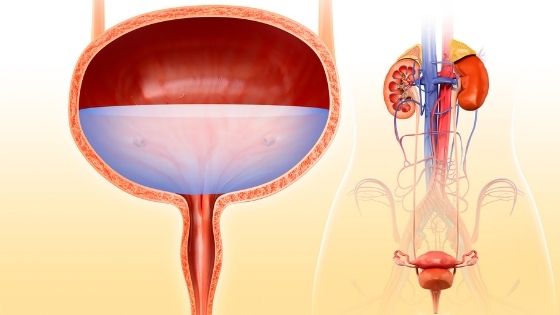Multiple Sclerosis is one of the common diseases which affects the functioning of the brain and its related functions. The exact cause of it isn’t known and it’s treated as an autoimmune disease. The immune system of the body attacks its nervous system damaging the capability to carry information and causes everyday health deterioration. With such a diagnosis, the inflicted will usually have to make many lifestyle changes. One of the most common symptoms of MS is bladder dysfunction. The good news is that while symptoms like tremors and slurred speech can be kept in control by attending physical therapy, bladder dysfunction is something that can be worked on from home. The following are some tips that are recommended for better ms-related bladder control problems.


Types of Bladder Control Problems in MS
1. Urinary Urgency
Urinary urgency refers to the condition where the brain is constantly receiving the signal that you must find a bathroom quick. There is a constant and urgent need to urinate. It is accompanied by the feeling of pressure which we generally correlate to just seconds before you begin urination.
2. Incontinence
Incontinence the bladder dysfunction which occurs due to a lack of signals between the brain and the bladder muscles. This is one of the common problems that people dealing with MS have to go through.
3. Nocturia
Nocturia is when people get up a lot at night to urinate.
4. Urinary Hesitancy
Urinary Hesitancy is where people have difficulty in passing urine, even though they know their bladder is full.
Tips for Better Bladder Control
1. Training
It may come as news to you, but the most common bladder control technique that Urologist Doctors advice is basic training. The linings of your bladder are made up of muscle. Just like every other muscle in your body the bladder wall can be trained and strengthened over time. The common way to do this is to set a urination time table. As time goes by, increase the duration between each bathroom break. This will help you build some storing duration in your bladder.
2. Diet
A change of diet is the most cost-productive treatment of incontinence due to MS. If one wants to control the amount of waste that leaves their body, then all they need to do is control its intake. Therefore, limiting the daily dose of fluids during the day, and especially evening times, can help your bowel health. It is also advised by doctors to avoid everyday consumption of alcohol and coffee as they are stimulants that cause excessive urination.
3. Clothing
The most common symptoms of MS are slurred speech and tremors. This makes everyday function in society amongst other members fairly difficult. Bladder dysfunction not only disrupts your daily work but can also cause an embarrassing situation for people. While one is in the early stages of self physical therapy of strengthening the bladder, it is advised to wear absorbent clothing. Options are available from pads to underwear which get the work done and are discreet enough to fit in your lifestyle.
4. Drinking-Water
Contrary to what one may assume, the National Urologist Association (Urological Society of India) suggests that people dealing with MS-related incontinence should drink large amounts of water at once. Rather than sipping small doses of water throughout the day, one must drink a large glass of water a few times a day. This helps you remain hydrated for a long time and reduces the fluid intake of your day.
5. No Smoking
Many smokers deal with frequent urination. The main cause for this is that nicotine in tobacco is a bladder irritant and disrupts the storing function of it. People with incontinence and a smoking habit must talk to their doctor for ways with which one can quit the habit. Some of the common treatment is the use of nicotine gum, patches, and other forms of medication.
6. Timed Urination
MS causes damage to the path through which signals are sent to the brain to inform us about what our body is going through. The need to urinate that one feels natural is one of these signals. Since we cannot rely on our brain anymore to tell us, we need to be on a schedule. Best Urology Doctors advise you to create a time table based on your daily fluid intake. Accordingly, decide the number of times you will have to visit the bathroom in a day and separate them at equally fixed intervals. Since MS may cause you to forget about your time table, your family member or caregiver may help you keep track and follow it.
7. Kegels
Kegels is an exercise that is very famous amongst women who have recently given natural birth, people dealing with bladder dysfunction, or bowel control problems. The exercise helps you to work out the pathways which your urine takes. These are the pelvic floor muscles, the weaknesses of which causes incontinence. The exercise is very simple to do and can be done while sitting, without any special physical therapy. Clench the muscles which are responsible for holding your urine in by squeezing like one would if trying to stop the flow of urine. Hold this position for 4-6 seconds and release. Repeat this exercise a few times every hour to strengthen the health of your bladder muscles.
8. Medical Remedies
In the early stages of MS-related incontinence medical intervention is not advised by doctors, but maybe opted for if necessary. Best Urologist doctors suggest treatment using medication like darifenacin, fesoterodine, oxybutynin, and trospium, to name a few, which help strengthen the bladder walls. Other than medication, doctors also advise physical equipment that can help. One of the common equipment is catheter and urethral insert. Another option is to surgically strengthen the walls of the bladder, however, this is considered only if all else fails.
Conclusion
The national statistics for India reveals that 1.33 people per 100,000 suffer from MS since it was first recognised back in the 1960s. Multiple Sclerosis causes one’s brain to lose control over the functionality of the body, form lesions, and stop feeling the most basic sensations. One of these sensations being the control over one’s bladder and bowel movements along with other health issues. This makes it very difficult for the working class citizen to live out their everyday lifestyle. Though managing oneself with a disease like multiple sclerosis is difficult, following the above steps have been shown to show results in patience working on their bladder control.









